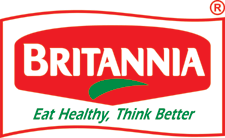Nestlé launched the Nescafé Plan bringing under one umbrella Nestlé’s commitments on coffee farming, production and consumption.
The Nescafé Plan contains a set of objectives which will help Nestlé further optimize its coffee supply chain. The Rainforest Alliance, an international non-governmental organization, will support Nestlé together with other partners of the Sustainable Agriculture Network (SAN) and the coffee association, 4C, in meeting the Nescafé Plan objectives related to farming.
Over the next five years, Nestlé will double the amount of Nescafé coffee bought directly from farmers and their associations, eventually purchasing 180,000 tonnes of coffee from around 170,000 farmers every year. With the support of the Rainforest Alliance and the 4C Association, all directly purchased green coffee will meet the internationally-recognized 4C sustainability standards by 2015. In addition, 90,000 tonnes of Nescafé coffee will be sourced according to the Rainforest Alliance and Sustainable Agriculture Network (SAN) principles by 2020.
Under the Nescafé Plan, Nestlé will distribute 220 million high-yield, disease-resistant coffee plantlets to farmers by 2020. This helps farmers to rejuvenate their plantations, thus multiplying the yield on existing land and increasing farmers’ income. Through partnerships with public and private institutions in a number of countries, including Mexico, Thailand, the Philippines and Indonesia, Nestlé has already distributed over 16 million coffee plantlets over the past ten years. Nestlé is also expanding its technical assistance programmes, in which Nestlé agronomists provide advice on farming and post-harvest practices, to over 10,000 coffee farmers a year.
Trivia:-
The Nescafé Plan comes on top of the Cocoa Plan, launched in October 2009, a CHF 110 million investment to improve the quality of cocoa which includes the distribution of 12 million high-yield, disease-resistant cocoa plantlets by 2020.
Under the Nescafé Plan, Nestlé will distribute 220 million high-yield, disease-resistant coffee plantlets to farmers by 2020. This helps farmers to rejuvenate their plantations, thus multiplying the yield on existing land and increasing farmers’ income. Through partnerships with public and private institutions in a number of countries, including Mexico, Thailand, the Philippines and Indonesia, Nestlé has already distributed over 16 million coffee plantlets over the past ten years. Nestlé is also expanding its technical assistance programmes, in which Nestlé agronomists provide advice on farming and post-harvest practices, to over 10,000 coffee farmers a year.
Trivia:-
The Nescafé Plan comes on top of the Cocoa Plan, launched in October 2009, a CHF 110 million investment to improve the quality of cocoa which includes the distribution of 12 million high-yield, disease-resistant cocoa plantlets by 2020.
























1 more on the triple bottom line bandwagon!
ReplyDelete